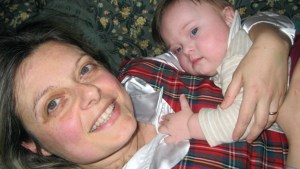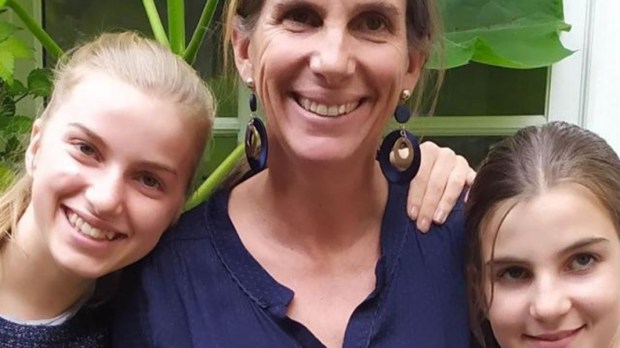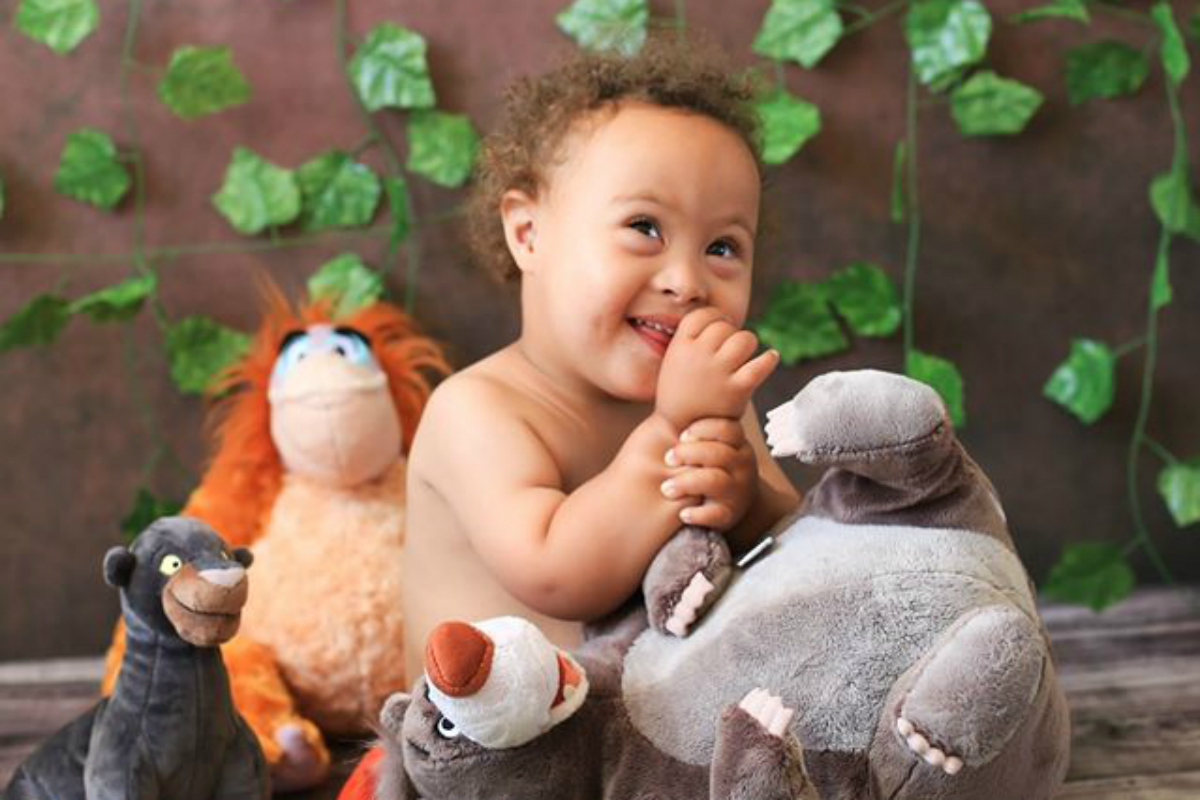“My family is great! We are atypical, but if you were to pass us in the street, you wouldn’t notice it,” says Agathe de Miniac. Agathe is married to Nicolas and is the mother of five children. Three of them have Tango 2, an extremely rare genetic disease.
Tango 2 is a kind of “general slowdown,” says Agathe. People with this condition have significant neuromuscular weakness and intellectual disabilities. They also experience convulsions during which they fall asleep, drool, and stagger. “They look like they’re drunk,” she explains.
This disease was only diagnosed in 2015, so not many people have heard of it. There are only about 100 known cases worldwide.
Tango 2 entered the life of Agathe and Nicolas with the arrival of Malo, their oldest son. “At that time I was an anxious mother who wasn’t prepared for the arrival of disability in our lives. Malo learned to walk at a normal time, but then everything slowed down,” she says.
The couple was on a humanitarian mission in Djibouti at the time. Malo showed increasingly worrisome symptoms, even sleeping for two days in a row. “He didn’t progress like other children,” she continues. But at that point, being a fairly relaxed person by nature, she didn’t feel very worried. It was when Malo started school that they fully grasped his disability. “It was quite a shock,” says Agathe.
The couple wanted to have a large family, and as their children were born, disability continued to present itself. “Anxiety came with the other children,” she says. Their next baby, Inès, was born without Tango 2, but then came Jeanne and Isabelle, both of whom had the disease. Louis, the last of her children, was born healthy.
Nicolas and Agathe consulted all kinds of doctors, including geneticists and pediatric neurologists, but they couldn’t reach any conclusions because there was a lack of scientific knowledge on the subject. It wasn’t until 2015 that the disease began to make an impact in the medical world, and to this day little is still known about it.
Despite the risks involved, Agathe and Nicolas always refused to get a prenatal diagnosis that would have allowed them to detect the disease during pregnancy. They believe that “we are to welcome children, not choose them.” Agathe explained the couple’s outlook:
Once you’ve chosen your child, you can make him feel responsible for the fact that he was chosen because he was the best. He doesn’t have the right to disappoint. Nicolas and I said, “We’ll accept everything; we don’t want to choose our children.” This is a very strong principle in our relationship. We don’t look at our children differently; we look at them normally.

Read more:
How a mother’s fear of having a baby with Down syndrome turned to wonder
Agathe is a history and geography teacher. Her children have a great need for sleep and have to be extremely careful with their diets. They also receive treatment and have multiple medical appointments. They have “cabs”—vehicles paid for by the state—to go to school, to the psychomotor therapist, physical therapist, or speech therapist. Through it all, Agathe says, she and her husband treat their children normally and respect their dignity:
Everything necessary is being done so that we can continue to lead a normal life. It’s important not to think about it all day, so they don’t feel you’re constantly looking at them with concern. We need to trust in each child’s capacity for growth. A disability doesn’t prevent that. These children’s dignity demands that we believe in them. I have confidence in the life of each of my children.
The strength of marriage
One of Agathe’s strengths is her marriage with Nicolas. She is grateful for the graces God gives their marriage, and credits God’s goodness with their marital unity. She says,
I don’t know why some couples separate and others don’t; why our marriage has endured. I remain very humble on this subject. I have great confidence in the Holy Spirit. Today we’re a strong couple. Nicolas is very calm, very gentle, not afraid. I’m more dynamic and energetic. He has been a safeguard and helped me not to overdo it with our children. I believe that the sacrament of marriage is not a sacrament in vain.
Of course, like all couples, their relationship has ups and downs. At times, they have experienced difficult moments with a wide range of feelings and emotions including anger, jealousy, misunderstanding, sadness, and pride.
“My children didn’t have a normal educational journey,” she emphasizes. As a teacher, it hasn’t been easy for her to accept. “I’m starting to cry less often,” she continues. “I’ve had 20 years of anger. The sacrament of Reconciliation allowed me to reconcile myself with my anger.” She also appreciates the unwavering support of her family and friends.
“I can’t explain everything that has happened to us. It’s not what I expected, but we have a great family life,” Agathe says. She describes her experience as a parent with a metaphor. “[Having a child with] disability is like taking a plane to Venice and landing in Amsterdam. It’s a different land, a very different country. It’s not what I would have chosen, but it’s still okay.”
In a way, from anger to pride, from failure to success, her family life is like an Argentinean tango that alternates between fast, slow, fast, and slow steps. It’s a rhythm that is sometimes disconcerting but pleasant to listen to.
“My children are very fragile, and yet I don’t protect them much,” concludes Agathe de Miniac. “Being overprotected, when you are vulnerable, prevents you from encountering others and prevents others from encountering your vulnerability.” Perhaps this ability to balance her fears with her children’s need for independence is the secret to her parenting success. Surely it’s a lesson all parents could benefit from, whether their parenting journey has brought them to the “Venice” or “Amsterdam” of her metaphor.
Read more:
How caring for her disabled daughter changed this mom’s life for the better
Every child is precious, whether or not they have disabilities, and this adorable photo campaign is a reminder of that!


